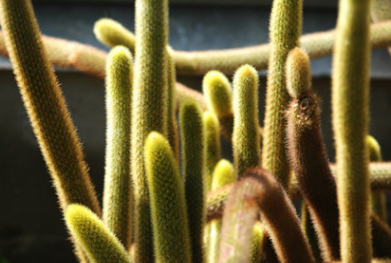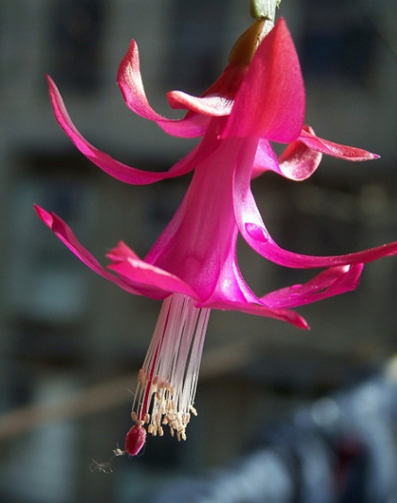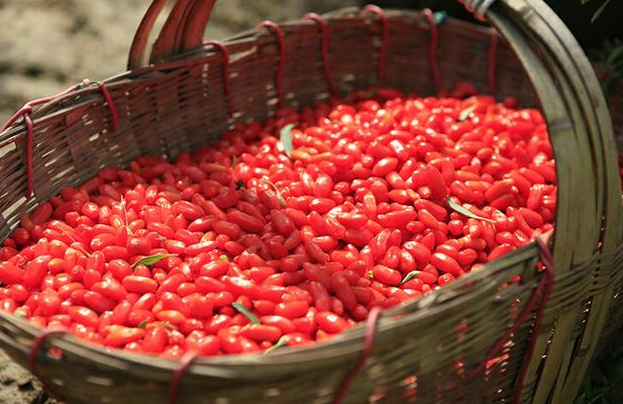How to reproduce common insect pests and control methods of golden button
The golden button, also known as the golden hair crown column, likes the sunny environment. Resistant to drought and semi-overcast, avoid dampness. The suitable temperature for growth is 20: 25. C, can withstand 4c | C low temperature. The habit is strong, there is no special requirement for the soil, and the common flower soil grows well.

How to reproduce Golden Button
1. The propagation method of golden button: ramet
There are some small seedlings at the base of the golden button of the adult plant, which can be propagated in spring or autumn. Cut off the seedlings at the base, wait for the incisions to dry, and implant them into the cultivation substrate. Do not water the seedlings that have just been implanted. Wait two days and water them properly. Wait until it takes root before normal maintenance.
2. The propagation method of golden button: cutting.
The golden button cuts full abnormal stems for cuttings in the growing season and cuts them into small segments of 10 centimeters, which should not be too short or too short to root. After drying for 2 days, the cuttings should not be too deep, the cutting medium should not be too wet, and the water holding capacity should be 60%, 70%, respectively. One month after insertion, it can take root, and then put on the basin. This method has a fast propagation speed and is commonly used in production.
The golden button cuttage had better use the columnar cactus as the rootstock, and the upright, thick diamond cactus as the rootstock is better.
3. The propagation method of golden button: grafting.
Grafting, mostly in May-June, can use upright column cactus such as pear fruit cactus, big flower snake whip column as rootstock. Take 10 cm of the abnormal stem at the top of the gold button as the scion and heal about 50 days after grafting.
Through grafting, it can grow into a good overhanging plant shape. Butt joint and miter joint can be used. The most suitable grafting time is from May to September. The method is as follows: select the branch of the leaf cactus that is not completely Lignified, cut it from the branch 2Mel 3cm, and cut it into a cone of about 1cm, and insert a young, green golden button at the tip of the rootstock without binding.
After the golden button grafting, pay attention to shading and control watering, the humidity is not easy to be too large, otherwise it will cause grafting failure. After more than ten days, the scion remained fresh green and survived. After removing the binding material and then entering the normal management, the grafted plants grew stronger and faster than the cutting plants, and could breed 5 lateral branches or even more.
Common insect pests and Control methods of Golden Button
1. Common pests in gold buttons: red spiders
Red spiders are one of the most common plant pests, and red spiders reproduce quickly and can reproduce about 10 generations a year. The red spider is very small. It uses piercing mouthparts to insert the mesophyll and stem bark of the plant, sucking the sap of the plant, causing the plant to turn yellow and even wither.
Prevention and control method: it can be sprayed with 1500 times of omethoate EC.
2. Common pests in gold buttons: White spiders
White spiders were originally not pests found in our country, but imported. Generally imported products have strong drug resistance, so the prevention and control of white spiders is more difficult. However, if it is difficult, we must guard against it, otherwise, a basin of beautiful gold buttons will be destroyed!
Prevention and control method: spray with 2000 times solution of 5% parabalin suspension.
3. Common pests of gold buttons: whitefly
The performance of insect pests: the adult nymphs sucked the sap of leaves, fruits and twigs, and the damaged leaves appeared green, yellow and white spots, which expanded into pieces with the aggravation of the damage, and then the whole leaves were pale and early falling; the flavor quality of the damaged fruits decreased, and the young fruits often fell off. Excreting honeydew can cause coal fouling disease.
Early pest control methods: when whitefly occurs sporadically, the medicine begins to spray 1500 times of 20% paraben wettable powder or 1000 times of 25% mites EC, 3000-4000 times of 2.5% Uranus EC, 2000-3000 times of 2.5% fenvalerate EC, 2000 times of 20% fenvalerate EC and 1500 times of imidacloprid wettable powder every 10 days. 2-3 times continuously.
Common pests of Golden Button and their Control methods
Common pest of gold button: red spider
Red spiders are one of the most common plant pests, and red spiders reproduce quickly and can reproduce about 10 generations a year. The red spider is very small. It uses piercing mouthparts to insert the mesophyll and stem bark of the plant, sucking the sap of the plant, causing the plant to turn yellow and even wither.
Prevention and control method: it can be sprayed with 1500 times of omethoate EC.
Common pests in gold buttons: White spiders
White spiders were originally not pests found in our country, but imported. Generally imported products have strong drug resistance, so the prevention and control of white spiders is more difficult. However, if it is difficult, we must guard against it, otherwise, a basin of beautiful gold buttons will be destroyed!
Prevention and control method: spray with 2000 times solution of 5% parabalin suspension.
Common pest of golden button: whitefly
The performance of insect pests: the adult nymphs sucked the sap of leaves, fruits and twigs, and the damaged leaves appeared green, yellow and white spots, which expanded into pieces with the aggravation of the damage, and then the whole leaves were pale and early falling; the flavor quality of the damaged fruits decreased, and the young fruits often fell off. Excreting honeydew can cause coal fouling disease.
Early pest control methods: when whitefly occurs sporadically, the medicine begins to spray 1500 times of 20% paraben wettable powder or 1000 times of 25% mites EC, 3000-4000 times of 2.5% Uranus EC, 2000-3000 times of 2.5% fenvalerate EC, 2000 times of 20% fenvalerate EC and 1500 times of imidacloprid wettable powder every 10 days. 2-3 times continuously.
Golden Button Culture method and points for attention Golden Button grafting method
Golden button, also known as rat tail, is a very warm succulent, can also be said to be a warm man in the cactus. Most of the golden buttons live in groups, they live together as a big family, and they will intertwine with each other in the process of growth, so people who like to live in groups and warm can try to breed them.
Culture methods and matters needing attention of Golden Button
1. Growth habits
I like a sunny environment. Resistant to drought and semi-overcast, avoid dampness. The suitable temperature for growth is 20: 25. C, can withstand 4c | C low temperature. The habit is strong, there is no special requirement for the soil, and the common flower soil grows well.
2. Methods of reproduction
The method of cutting the top and promoting growth and branching is commonly used for branch propagation in the spring and autumn season. The stem segments of adult plants were cut to 8cm, dried and cut, which could be propagated by cuttage, and the stem segments of 3cm to 4cm could be used as scions for grafting.
3. Cultivation and management
In the growing season, watering is based on the principle of humidity between dry and dry, and thin fertilizer is applied once a month, mainly phosphorus and potash fertilizer. Long-term lack of light is disadvantageous to flowering, so it is advisable to keep it in the sunny place. Appropriate shade in midsummer, controlled watering in winter, keep the basin soil slightly moist. Pay attention to the prevention and control of spot disease and red spiders and whitefly. Soil: Sandy loam and forest soil with sufficient bean fertility and good permeability, avoid stagnant water, resistant to drought.
4. Points for attention
① moisture: summer can not lack of water, basin soil to keep moist, and often spray moisturizing. Watering every ten days in winter, be careful not to spray water on the stem bark.
② sunshine: like light, resistant to strong sun, but also resistant to semi-shade, but long-term shade stems grow slender.
③ fertilizer: add mature organic fertilizer to the nutritious soil before pot planting, fertilize once a month during the growing season, and do not apply fertilizer when dormant in winter and summer.
④ temperature: like warm, big temperature difference between day and night climate conditions, can not bear the cold.
Golden button grafting method
Grafting, mostly in May-June, can use upright column cactus such as pear fruit cactus, big flower snake whip column as rootstock. Take 10 cm of the abnormal stem at the top of the gold button as the scion and heal about 50 days after grafting.
Through grafting, it can grow into a good overhanging plant shape. Butt joint and miter joint can be used. The most suitable grafting time is from May to September. The method is as follows: select the branch of the leaf cactus that is not completely Lignified, cut it from the branch 2Mel 3cm, and cut it into a cone of about 1cm, and insert a young, green golden button at the tip of the rootstock without binding.
After the golden button grafting, pay attention to shading and control watering, the humidity is not easy to be too large, otherwise it will cause grafting failure. After more than ten days, the scion remained fresh green and survived. After removing the binding material and then entering the normal management, the grafted plants grew stronger and faster than the cutting plants, and could breed 5 lateral branches or even more.
Common pests of Golden Button and their Control methods
1. Red spider
Red spiders are one of the most common plant pests, and red spiders reproduce quickly and can reproduce about 10 generations a year. The red spider is very small. It uses piercing mouthparts to insert the mesophyll and stem bark of the plant, sucking the sap of the plant, causing the plant to turn yellow and even wither.
Prevention and control method: it can be sprayed with 1500 times of omethoate EC.
2. White spider
White spiders were originally not pests found in our country, but imported. Generally imported products have strong drug resistance, so the prevention and control of white spiders is more difficult. However, if it is difficult, we must guard against it, otherwise, a basin of beautiful gold buttons will be destroyed!
Prevention and control method: spray with 2000 times solution of 5% parabalin suspension.
3. Whitefly
The performance of insect pests: the adult nymphs sucked the sap of leaves, fruits and twigs, and the damaged leaves appeared green, yellow and white spots, which expanded into pieces with the aggravation of the damage, and then the whole leaves were pale and early falling; the flavor quality of the damaged fruits decreased, and the young fruits often fell off. Excreting honeydew can cause coal fouling disease.
Early pest control methods: when whitefly occurs sporadically, the medicine begins to spray 1500 times of 20% paraben wettable powder or 1000 times of 25% mites EC, 3000-4000 times of 2.5% Uranus EC, 2000-3000 times of 2.5% fenvalerate EC, 2000 times of 20% fenvalerate EC and 1500 times of imidacloprid wettable powder every 10 days. 2-3 times continuously.
The floral language of the golden button
The flower language of the golden button is: warm family
Golden button is a succulent and succulent plant, also known as golden crown column, golden button, sage, medicinal sage, Salvia, golden button, golden button column, generally flowering in summer, has the effect of removing formaldehyde and can protect against radiation. The golden button is an ornamental plant and a flower that we are all familiar with. Its golden stems and gorgeous flowers are all warm colors, unlike those plants that look cold, so there are flower words like "warm family".
Warm families are indeed very representative of golden buttons, which are passionate and like living in groups at the same time, and the methods and techniques of cultivating golden buttons are not much different from the usual succulent and cactus plants, so breeding is not very difficult.
- Prev

The fairy refers to how to raise more flowers and how to maintain the four seasons correctly.
Fairy refers to the origin of Brazil Daquan, like the warm and humid climate, the suitable temperature for growth is between 15 ℃ 25 ℃, the winter temperature is not lower than 7 ℃. Cactus has a certain ornamental, it is a more popular indoor ornamental plant, the cactus is placed at home
- Next

How can potted Lycium barbarum sprout
If you want to talk about this Chinese wolfberry, it is really super delicious and delicious. Do you want to raise your own potted plants? Let's take a look at the planting method of potted Chinese wolfberry: the first method is to plant Chinese wolfberry seeds. You can soak the dried Chinese wolfberry in water, crush it with your hand, and then fish out the seeds and meat floating on the water and throw them away.
Related
- Fuxing push coffee new agricultural production and marketing class: lack of small-scale processing plants
- Jujube rice field leisure farm deep ploughing Yilan for five years to create a space for organic food and play
- Nongyu Farm-A trial of organic papaya for brave women with advanced technology
- Four points for attention in the prevention and control of diseases and insect pests of edible fungi
- How to add nutrient solution to Edible Fungi
- Is there any good way to control edible fungus mites?
- Open Inoculation Technology of Edible Fungi
- Is there any clever way to use fertilizer for edible fungus in winter?
- What agents are used to kill the pathogens of edible fungi in the mushroom shed?
- Rapid drying of Edible Fungi

